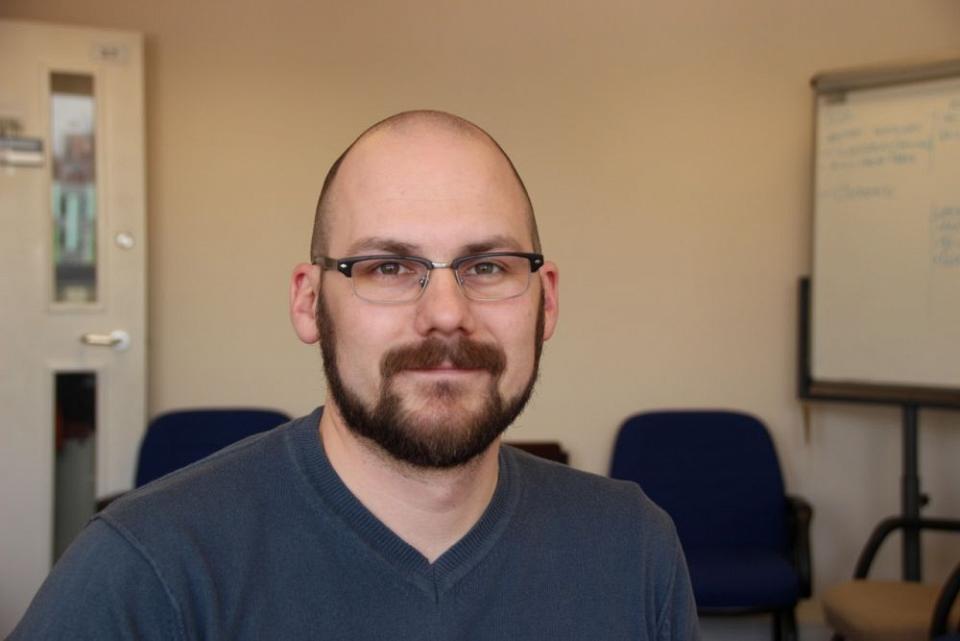Alumni Profile: Dr Scott Eldridge II
What and who is a journalist in the post-WikiLeaks era? In this alumni profile Dr Scott Eldridge II puts his own argument forward in answer to this question - based on a theory he developed as part of his PhD. He also shares his insights into transitioning from practicing journalism to studying it.

Scott Eldridge II / USA
Mundus Cohort 2007 - 2009 / Hamburg
Before joining the Mundus Journalism programme Scott Eldridge II worked as a reporter and photographer for several publications across the USA. But he knew that when he started his masters, it was likely to signal the start of a new career for him. And it did. Scott has gone on to complete his PhD at The University of Sheffield in the UK, where he now works.
The switch from journalist to academic was a natural one for Scott, who says he made the move with the intention of being able to spend more time going in depth and investigating themes in the media. Many of which he found fascinating while he was working before, but never felt he had the space or means to delve into. That was in 2006. These days, he splits his time between teaching graduate students at Sheffield’s Journalism Studies department, working on his own research, and setting up collaborations with academics in the UK and abroad.
While Scott is happy with his place in academia, his research is still closely aligned to his experience as a journalist. His current focus is on developing new models for understanding what journalism is and who can be defined as a reporter in the age of blogs and citizen media. Scott’s PhD - which he recently completed - used WikiLeaks as a case study to investigate this. Specifically, he looked at the interaction between the sphere of the traditional - or the professional - journalist and new actors who are making claims on these same qualities (that traditional journalists hold to). Essentially, his work explored whether or not WikiLeaks could be considered journalism.
As well as teaching graduates at Sheffield’s journalism school, Scott is now in the process of presenting facets of his PhD research at different conferences. It’s a process of trying to consolidate a new argument for how to approach journalistic identities from a more flexible point of view.
“You won’t find your way in two years,” he says. “You won’t find your way in a three year PhD either. What you will find though is that there’s something that’s really interesting to you. And it doesn’t really need to be something interesting to the world. It just needs to be interesting to you.”
Understanding identities is also something that transfers over into his day-to-day work. Scott says the research he and others in his department do is still gaining recognition beyond journalism studies, and many people in the wider university are still learning to see journalism as a scholarly object for investigation - not just a vocation or trade to be taught. To this extent, every now and then he still gets the occasional request to write up a press release, with people getting confused about what exactly his job entails. Nonetheless, Scott says he loves his work and the freedom he has to delve into different projects - often too many at once, he jokes. He also travels and attends conferences for work - where he frequently bumps into alumni, friends and previous teachers from the Mundusian diaspora.
As for students who might be interested in heading down a similar career track, Scott’s advice is simple: “You won’t find your way in two years,” he says. “You won’t find your way in a three year PhD either. What you will find though is that there’s something that’s really interesting to you. And it doesn’t really need to be something interesting to the world. It just needs to be interesting to you.”
“So if you’re getting ready to do your thesis and that’s going to be six months of research… It better be something you can wake up in the morning and say ‘I can do this’. It’s finding that one thing. And for me, it was the PhD.”
Are you a Mundus Journalism student or alumni? Connect with us:
- Find our private alumni group on facebook for networking, job and collaboration opportunities
- Show potential employers you're associated with the programme by adding '@mundusjourn graduate' (or student)'\ to your twitter or '@mundus_journ graduate' (or student) to your instagram profile
- Additionally, tag us with your work links or relevant photos on twitter and instagram to share with the network. We use hashtags: #mundusjournalism #mundushegemony #EMJalumni #EMJstudents